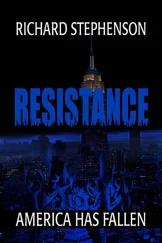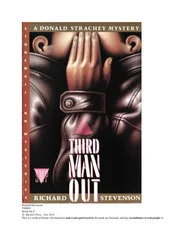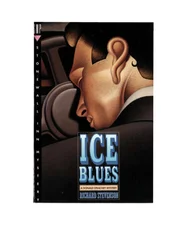An hour later, Benjamin Black and his loyal community moved into their new home at Universal Studios. It would be a challenging task to secure the property and repel attacks. The one thing that Benjamin had going for him was that the property already had a decent perimeter in place. Theme parks didn’t make a lot of money if people could just sneak in. He could secure it with a dozen or so pairs of roving patrols. He came up with the brilliant idea of using a numbered password system that he’d learned from a movie. It was simple yet ingenious. Each day would have a random number assigned to it. For example, if the day was assigned a nine, all one had to do was challenge an unfamiliar face with a smaller number, and wait the other person to respond with the number that added up to nine. If the stranger couldn’t do the simple math, it was obvious that he was an intruder. For the first several weeks, the primary task for everyone, including Benjamin, was cleaning up the hurricane ravaged park. Within a month of their arrival, they had over five hundred people living there.
Benjamin Black was proud of all he had accomplished. He was respected by all his residents, and they were loyal to him in exchange for food and shelter. Benjamin knew he could branch out and expand. His next destination would be the Magic Kingdom.
* * *
Lindsay Sanderson was being smacked over the head with a broom. She and her two children had been evicted from the Central Park Obama-Camp the day before, and she was dumpster diving to feed her hungry children. At first she thought the angry woman yielding the broom was an employee of the restaurant that owned the dumpster, but she soon realized it was only another mother defending her turf like a momma cat defending her kittens. Lindsay raised her arms to stop the blows but the woman kept swinging. As the broom smacked the top of her left hand, breaking one of her fingers, any sympathy Lindsay had for the woman immediately evaporated. The fact that they shared the bond of motherhood meant nothing to her if this woman was intent on doing her harm. Lindsay screamed at the top of her lungs and kicked the woman in the knee. She fell to the ground, giving Lindsay the chance for a quick escape. She quickly grabbed her children by the hand and hustled up the sidewalk. She doubted the woman would leave her own children unattended long enough to pursue her, but retaliation can make people forget a lot of things. She looked over her shoulder to the alleyway and was relieved to see no sign of the woman. Lindsay wasn’t afraid of the woman herself; what scared her was the possibility of landing in jail and losing her children to Child Protective Services.
Lindsay carefully crossed the street and sat down on a park bench; setting about the task of distracting her children from what they’d just experienced. She was becoming a pro at helping her children disregard the miserable world around them. William would be proud. The day before when riot squads emptied out the Central Park Obama-Camp, Lindsay worried about her husband and the anguish he would feel upon learning their fate. She was going to fight hard to survive the two weeks until she could talk to him again. The night before William left to join the Army, she’d promised him that she would protect their children and that the three of them would survive without him. At first she’d worried that William would receive the news and leave boot camp to come rescue her. Lindsay remembered that after the war with the Great Empire of Iran started, the military made it clear to the public that desertion would lead to a court-martial and a minimum of five years in prison. She knew William would never jeopardize his family like that.
She sat on the park bench and hugged her children. She loved them so very deeply but at the same time was angry with herself for letting an ugly thought continue to enter her mind. A very small part of her resented her children for the burden they caused her. Any time the thought came to her, she fought to free herself from it. She imagined what her life would be like without them, how much easier it would be to survive. All she had to do was hold her children close to chase the thought from her mind.
Lindsay looked to her left and right, then turned around and scanned the rest of the park. She firmly believed there was safety in numbers. If other homeless people were scattered around the park, she felt much safer. She was less likely to be bothered by anyone or be the sole recipient of half concealed, judgmental glances. Too many homeless people in the park would attract the attention of the Unified National Guard, so she was careful to search for the right balance and try to blend in with the crowd.
Lindsay had spent the previous twenty-four hours living one minute at a time. Before they moved into Central Park, she had depended on William’s judgment to keep them safe. Now she was without her husband and it was up to her to call the shots. She had to stop living moment by moment and start thinking of living day-by-day. Wandering around aimlessly wasn’t safe. She had to come up with a plan. Her children had barely had a scrap of food to eat since they left the Central Park Obama-Camp. When the Unified National Guard came marching in to evict them, Lindsay was not at her home. She’d asked her neighbor to look after her place so she could take the kids with her to the medical station at the north end of Central Park. She was standing in line when the riot squads began throwing tear gas into the makeshift streets. She tried desperately to run back to her home but was cut off at every turn. She fled into the streets surrounding Central Park and waited for the Unified National Guard to leave. Lindsay sat down outside a well lit drugstore and held her kids tight so they could sleep. She was able to doze off a few times and get enough rest so she could tackle the next day.
When the sun came up, Lindsay walked toward the Central Park Obama-Camp to find exactly what she expected. Bulldozers and dump trucks were tearing down all the structures and hauling everything away. Evicting them would do little good if the residents could just return after the soldiers left. All around the park, the former residents watched and waited for the Unified National Guard to leave. Once they departed, the residents swarmed in to try and salvage anything they could.
Lindsay sat on the park bench and let her children play on the ground in front of her. Anytime they took one step beyond arms reach, she quickly reigned them back in. She was determined to sit right there on that bench and not get up until she had some sort of plan. Lindsay thought of the different possibilities for shelter and weighed the risk. Thirty minutes later, she had a plan in mind. The first item on the agenda was to find a public restroom in a crowded place with lots of foot traffic. She and her children would bathe as best they could and attempt to wash their clothes. The less ragged they looked, the better. It would increase their odds of survival and allow them to blend in with everyday people. The second item on the agenda was to loiter in large public places like airports, train stations, or shopping malls. She made it a point to look like she was in each place for a reason. She would only stay for three or four hours to avoid suspicion.
After one week of thinking she was blending in perfectly, a TSA agent at LaGuardia Airport approached her. Lindsay trembled in fear and began to cry, certain that she was about to be arrested even though she hadn’t committed a crime. What she failed to realize was that with air travel being so expensive, only the very wealthy had the funds to afford it. Lindsay and her children stuck out like a sore thumb. The TSA agent knew what she was doing. He told her to stop crying and calm down. He took out a piece of paper and wrote down an address and his name. Lindsay was suspicious of the man but reluctantly took the slip of paper. He told her to go to the address and mention his name. The people there would provide Lindsay and her children with food and a warm bed. She looked confused and wanted to believe him, but she knew that when something seemed too good to be true, it often was. He assured her that it was a private, charitable organization for the homeless. Regrettably, they had to be selective and had to keep the location a secret because they didn’t have the funds or the means to cater to the waves of homeless people walking the streets of New York City. The man smiled warmly and shared with her that he and his family lived there years ago. The only price of admission was your word that you wouldn’t stay longer than two weeks.
Читать дальше










